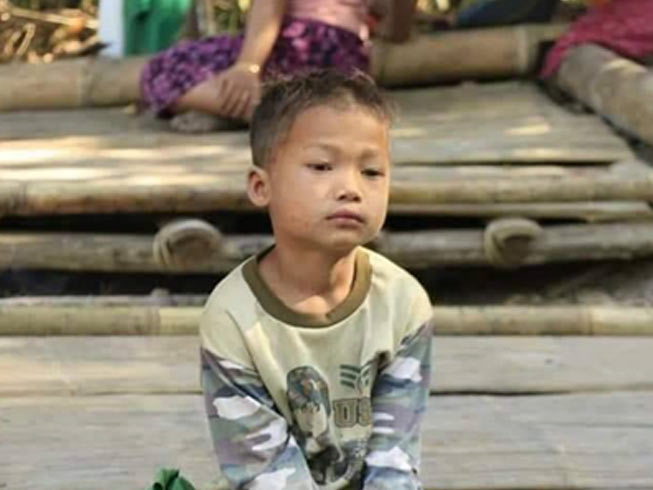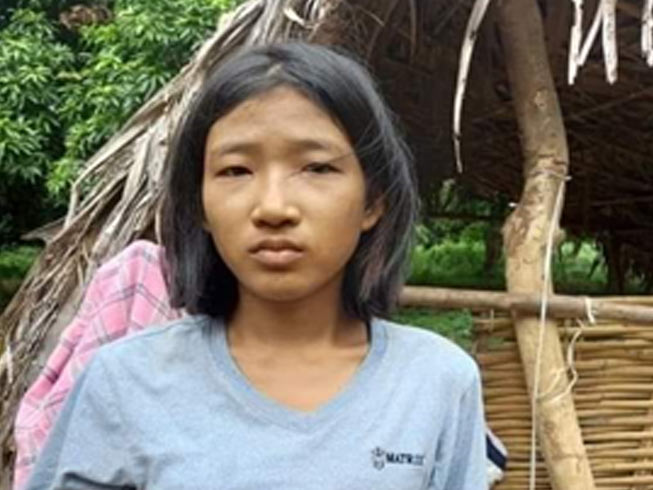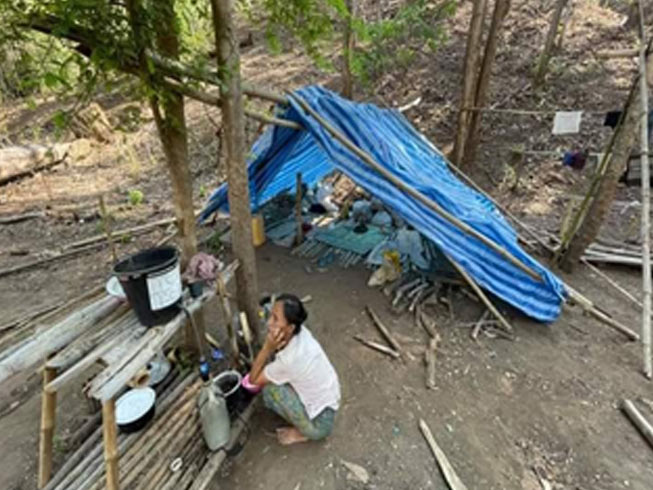“They are helpless, unable to defend themselves from brutal, well-equipped military forces. Life is hard for them,” says our project partner in Thailand, describing life for the Karenni people in their homeland, Kayah state in Myanmar (Burma).
Kayah is one of the least developed states in Myanmar. Its people, who are mainly Christians, are being attacked and forcibly removed from their land. People are killed and church buildings are burnt. This is part of a pattern of persecution across Myanmar, where village after village is targeted by the much-feared Tatamadaw (Myanmar military): through bombing, artillery fire, ransacking homes and killing livestock, they drive out the inhabitants. The Tatmadaw’s targets are usually the mainly Christian ethnic minorities like the Karenni (or Red Karen, a subgroup of the Karen people).

Karenni people running for their lives as the Tatmadaw attacks
Many Karenni have tried to cross the border into Thailand. But this is easier said than done, and family members can get separated from each other in the dangerous process. A Karenni man at the border was shot in the leg and could no longer walk. One group of Karenni who had gathered near the border preparing to escape, was ambushed by the Tatmadaw. Six young people were handcuffed and taken away. No one knows what has happened to them.

This Karenni boy got separated from his parents as the family crossed from Myanmar into Thailand. About a week later they were reunited – a miracle, say local Christians. Will you help him and other Karenni refugees survive in their “hiding place” in Thailand?
But some Karenni families did manage to cross into Thailand. One group of about 250 families (1,400 people, including elderly relatives) is living together in the jungle. It is a remote and flood-prone place which can only be reached by motorbike or on foot. But the more difficult their hiding place is to access, the safer it is for the Karenni.

One of the Karenni young people taken by the Tatmadaw while waiting to cross the border
The refugees have built makeshift shelters, but there is no way for them to earn a living. Local Christians are doing their best to provide for the Karenni’s practical needs, but have appealed to Barnabas Fund to assist.

Makeshift shelters in their jungle hiding place in Thailand. Will you provide floor mats and mosquito nets for the Karenni refugees?
Food and hygiene items will include rice, yellow beans, noodles, cooking oil, salt, soap and washing powder at an estimated cost of $55 per family per month.
A set of tarpaulin, floor mat, blankets and mosquito net for a family costs around $28
Will you help our Karenni brothers and sisters who have suffered so much – first in their homeland, then as they fled, and now in Thailand?